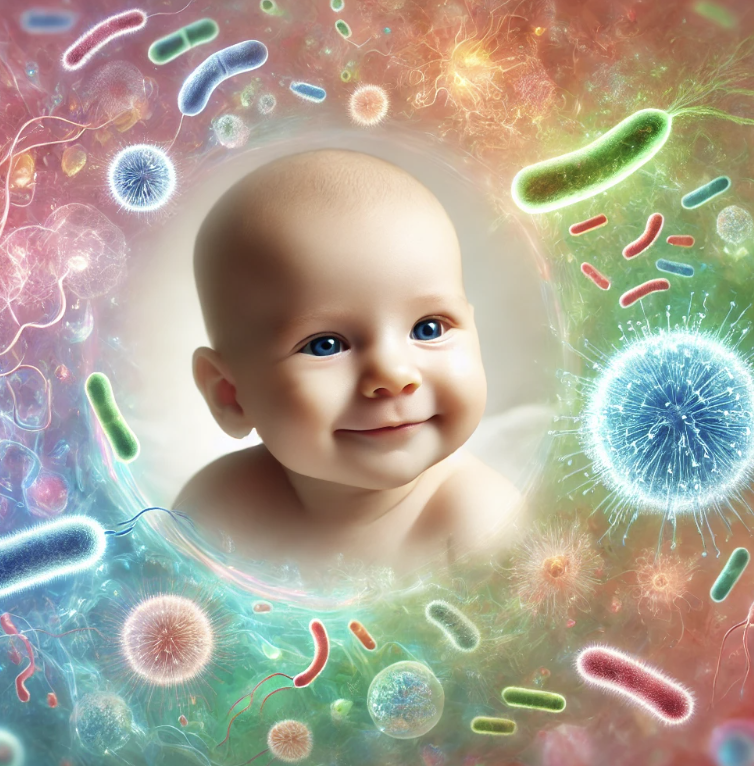Your Microbiome - Pregnancy Facts
Here’s a quick whistle stop tour of Pregnancy Microbiome Basics
Check out my other blogs on how to support your microbiome in pregnancy.
1. Introduction
The human body is inhabited by trillions of microbes essential for health. It’s considered an organ and weighs about the same as your brain. Fascinating huh!
Historically, it was was believed that baby was living in a sterile environment until birth in the womb, but recent evidence suggests that microbial exposure begins in utero.
Your microbiome is likely to be similar to your partners (yup you share microbes).
2. In Utero Microbial Exposure
Studies show the presence of microbes in the placenta, amniotic fluid, and fetal tissues.
Microbes in the womb could be transferred through the maternal bloodstream or ascending from the vagina.
3. Maternal Diet and Microbiome
Maternal diet, especially a high-fat diet/carb diet can impact the offspring's microbiome and health.
Diet during pregnancy and lactation influences the composition of breast milk and subsequently the infant's gut microbiome.
Maternal high-fat diet can lead to increased risk of obesity, anxiety, and metabolic disorders in children.
4. Preterm Birth
Preterm infants have a different gut microbiome compared to term infants.
Preterm infants' microbiomes are less diverse and contain more pathogenic (illness causing) bacteria.
NICU environment and antibiotic use influence the preterm baby’s microbiome.
5. Mode of Birth
Vaginal delivery exposes your baby to beneficial vaginal microbes.
A cesarean birth limits this exposure, potentially affecting the baby's microbiome and long-term health. When baby is exposed to mom’s faeces (poop) during a vaginal birth (bifidobacteria) – lactic acid bacteria boosts baby’s energy after birth. It breaks down the sugars in breastmilk, coats your baby’s intestine to keep harmful bacterial out and inhibits growth of that harmful bacteria. They also create their own antibiotics to kick out any pathogenic bacteria. Isn’t that cool?
Studies suggest that cesarean born infants may have higher risks of conditions like asthma, obesity, and diabetes.
Even place of birth can impact baby’s microbiome - at home you’re only being exposed to your own familiar bacteria - in hospital your baby’s microbiome can be impacted by staff handling, linen etc. (I always recommend my doula clients bring a towel from home to receive their baby that mom has slept with for a day or two).
6. Breastfeeding and Formula Feeding
Human breast milk contains a distinct microbiome that seeds the infant's gut.
Breast milk's composition changes with maternal diet, influencing your baby’s gut microbiome.
Formula-fed infants have a different microbiome compared to breastfed infants, which can affect their health. •
Antibiotics alter the microbiome up to 12 months especially, if your baby isn’t not breastfed. Breastfeeding modifies some of the effects of a cesarean birth - think of it as a back up system or an insurance policy.
In a Nutshell
The human microbiome plays a critical role in health, starting from the womb.
Your diet, how baby is born, exposure to antibiotics and feeding practices significantly influence the developing infant microbiome.
Maintaining a healthy maternal microbiome through nutrition and lifestyle changes (stress, exercise, red light) can positively impact your baby's health.

